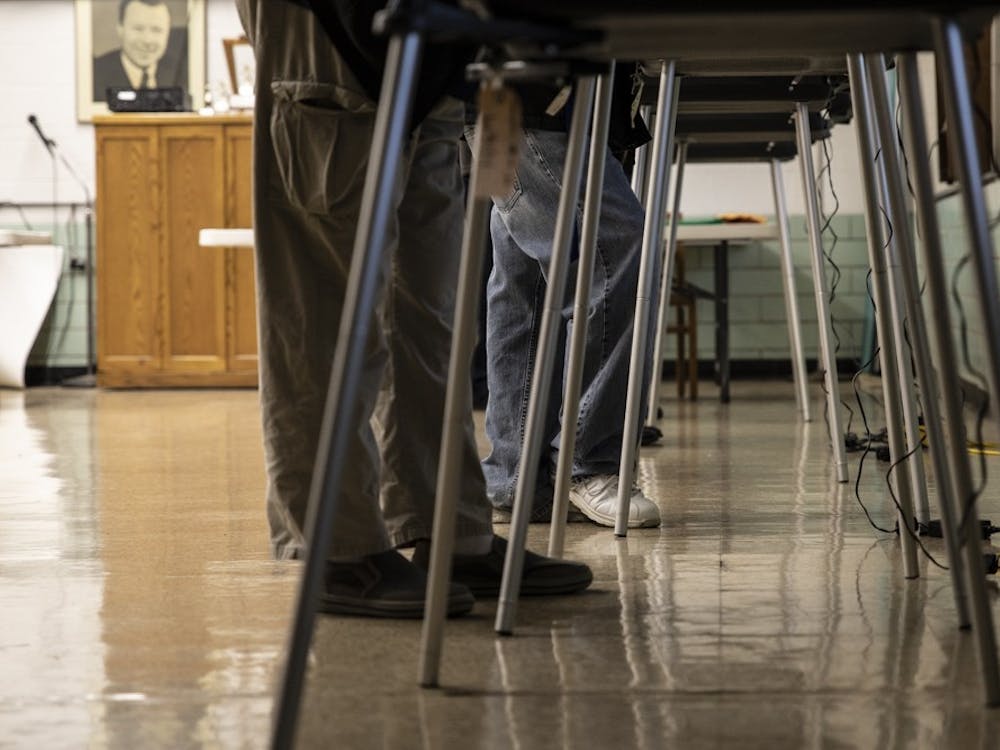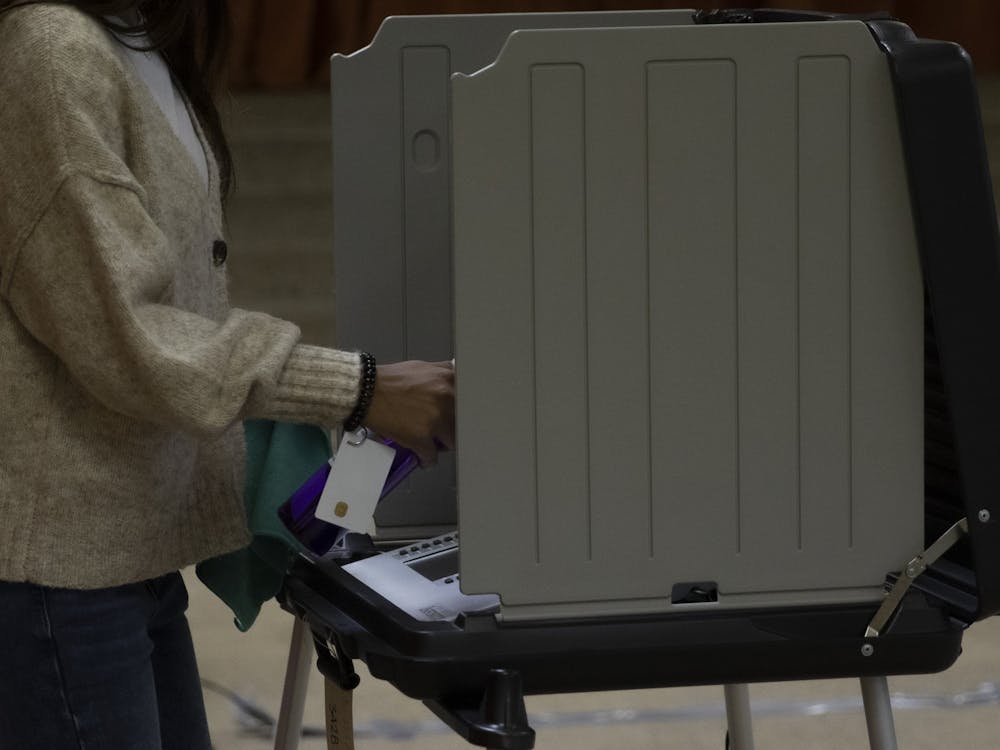Think you've got it bad? Try adding a few more hours of homework to your schedule.
The university is considering new standards that would mean two hours of homework for every hour in class as part of the school response to tough state demands for more accountability.
Provost Terry King briefed University Senate members on the efforts to meet demands for greater academic rigor during a meeting Thursday.
The Indiana Commission for Higher Education now reserves 5 percent of state support for the public colleges for performance-based funding. Success is measured, among other things, by graduation rates, completion of credit hours and research incentive.
The discussion comes at a time when Ball State is in the middle of organizing its next strategic plan and the Indiana General Assembly is in the middle of discussing things like higher education funding and standards.
King explained that lawmakers are pushing schools to pursue academic excellence, and still graduate students in four years.
"If we don't fix some things, they will be fixed for us by legislation," he said.
"We have to figure this out. There are a lot of smart people at this university."
WHAT'S AHEAD
State support has dropped steadily over the last 20 years. During Thursday's meeting, Randy Howard, vice president for Business Affairs and treasurer, gave a presentation that showed state funds for higher education have dropped from 9.8 percent in 1980 to an estimated 6.5 percent in 2013, according to the National Center for Higher Education Management Systems.
It's important for faculty to understand that the distribution of state funds is changing, said Eric Kelly, the University Senate chairman.
In the last 10 years, state support for Ball State has seen a slight decrease, from $120.3 million in 2002-03 to $118.7 in 2012-13.
"If any of you are thinking, if you have a few more students in a class there will be more money to the university, that ain't how it works anymore," he said.
Ball State isn't alone in confronting demands for higher graduation rates. The University of Texas launched a similar plan this month, and the head of a task force there acknowledged that there are tough choices to make.
"An easy way to improve graduation rates is to water down the course curriculum, but we entirely reject such an approach," said Randy Diehl, dean of the College of Liberal Arts at the college.
SOME RESERVATIONS
Some members of the University Senate asked how they could raise academic standards at the same time they're supposed to be helping students graduate on time. More challenging coursework, the thinking goes, could cause students to take longer to finish school.
Biology Professor David LeBlanc, the father of a Ball State nursing major, said it might be impossible to achieve both goals at once.
"We're being held accountable for what is basically the behavior of our students," he said in an interview afterward. "We can demand homework, and I do demand homework in all of my classes, but my students don't like it."
LeBlanc said his daughter sacrifices time with her friends to get good grades, something he said other students aren't willing to do.
They won't be happy to learn that their education is becoming at least a 40-hour job, he said, referring to a 15-hour academic schedule with the proposed 30 hours of homework.
"The solution is that students need to take their education more seriously," LeBlanc said.
The professor met with a third-year student before attending the University Senate meeting. The student said he still didn't know what he wanted to do with his college degree - a not-uncommon uncertainty that can also hinder the four-year graduation plan.
"When I have freshmen come talk to me, the way they should, the first question out of my mouth is, 'What do you want to be?" he said.




